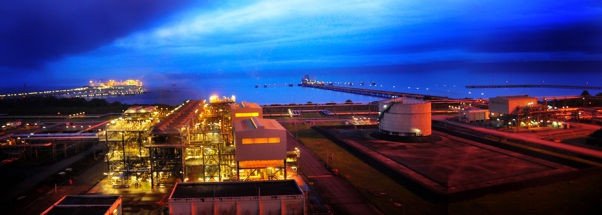Shell Buries Nigeria Gas Pipe, Gains Friends
The Kolo Creek to Soku gas pipeline, operated by Shell Petroleum Development Company (SPDC), which previously ran on the water surface across Kolo Creek in Nigeria’s Bayelsa state, has now been buried under the river bed.
After the pipeline was first placed across the creek in October 2016, complaints were made by environmental groups and residents to SPDC. The company relocated the pipeline a few days ago on January 20 with the help of Kolo Creek oilfield workers.
According to Vanguard newspaper and other media, Alagoa Morris, head of field operations in Bayelsa state for Environmental Rights Action/ Friends of the Earth Nigeria, praised SPDC for relocating the pipeline, saying it would enable the fishermen and the community to operate alongside Shell. "When they do well, we applaud and commend them, and this is a win-win situation for Shell and its host community,” he said.
Associated gas from Kolo Creek, in OML28, flows via a 24-mile pipeline to Soku as part of SPDC’s Gbaran Phase 2B development. Despite militant activity in the Niger delta region, and despite legal action in April 2016 by Bayelsa state, the Gbaran project has maintained its operations. However Shell faces other claims, including one for $6.5bn from the federal government, plus two others brought in London by two Nigerian community groups.
OML28 is operated by Shell 30%, with state NNPC holding 55%, Total 10% and Eni 5%.
Gbaran Phase 2B is meant to sustain feed gas volumes for the Shell-run Nigeria LNG (NLNG) export venture.

Associated gas from Kolo creek helps maintain production at the Nigeria LNG plant on Bonny Island here (Photo credit: NLNG)
NLNG's export capacity, based on its six trains, is 22mn metric tons/yr of LNG plus 5mn mt/yr of natural gas liquids (LPG and condensate), based on a feed gas intake of 3.5bn ft3/d. NLNG shareholders are NNPC 49%, Shell 25.6%, Total 15% and Eni 10.4%. It began exports from train 1 in 2000.
Omono Okonkwo



